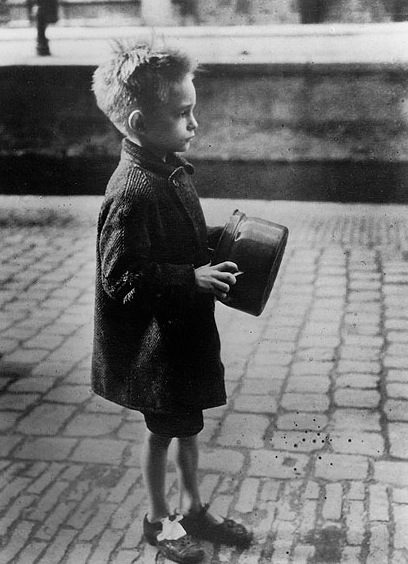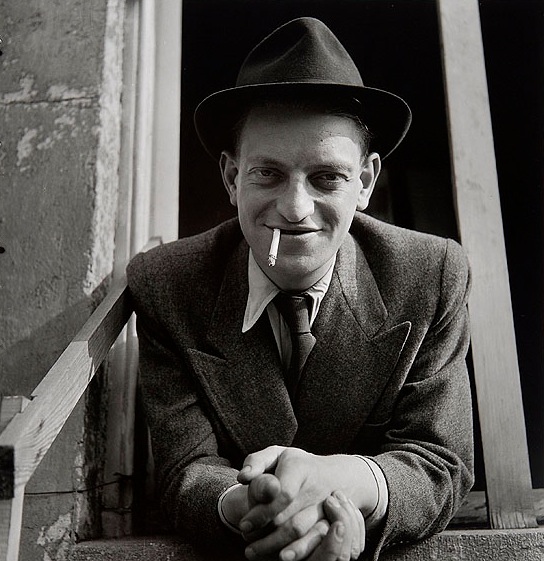
Boy with pan on his way to a soup kitchen food distribution. Amsterdam, spring 1945. © Emmy Andriesse /Coll. JHM
Jewish Historical Museum Nieuwe Amstelstraat 1 1011 PL Amsterdam Pays-Bas
From 27 April through 30 September, the Jewish Historical Museum is pleased to present an exhibition of work by Emmy Andriesse, one of the twentieth century’s leading Dutch photographers. Visitors have a chance to see photos of Jewish life, war and liberation – all taken in Amsterdam, the city where the photographer spent most of her working life. The JHM purchased these photographs in 2008 from the Special Collections Department of the Leiden University Library. This unique acquisition is being exhibited to the public for the first time.
Emmy Andriesse (1914-1953), after completing her training to become a photographer in 1937, specialised in the new genre of social documentary photography. She later shot cityscapes, landscapes and fashion spreads; taking portrait photos increasingly became an important part of her work. Together with her fellow photographers and friends Cas Oorthuys, Eva Besnyö and Carel Blazer, she defined the face of Dutch photography in the 1940s and 1950s, a period when faith in progress and reconstruction was central to the mindset of the era.

Meik de Swaan (1911-1957). 1930s. © Emmy Andriesse / Coll. JHM
As an emancipated Jewish woman, Emmy Andriesse was far removed from traditional Jewish life. Specifically Jewish themes are rarely seen in her photos. Still, her background had an unmistakable influence on her life and work. She was attracted to the market at Waterlooplein, with its lively atmosphere of Jewish merchants and street vendors. The photo series she made there has never been published and can be seen for the first time in this exhibition. From that period there is also a small series of photos of the Portuguese Synagogue, in which she successfully captures the building’s characteristic, seventeenth-century ambience.
In 1941, Andriesse was forced to give up working due to the German Berufsverbot (Professional Ban) directed at Jews. She went into hiding in 1943, but thanks to expertly forged documents surfaced again in late 1944. During the last six months of the Occupation, together with Cas Oorthuys, she was one of the most active illegal photographers of De Ondergedoken Camera (The Underground Camera). Human suffering was the focus of her work – on the street but also in people's homes. Following the Liberation, Emmy Andriesse photographed people celebrating. At the same time, she made poignant pictures of the plundered homes and desolate ruins in Amsterdam’s Jewish quarter.
Image : Boy with pan on his way to a soup kitchen food distribution. Amsterdam, spring 1945. © Emmy Andriesse /Coll. JHM

